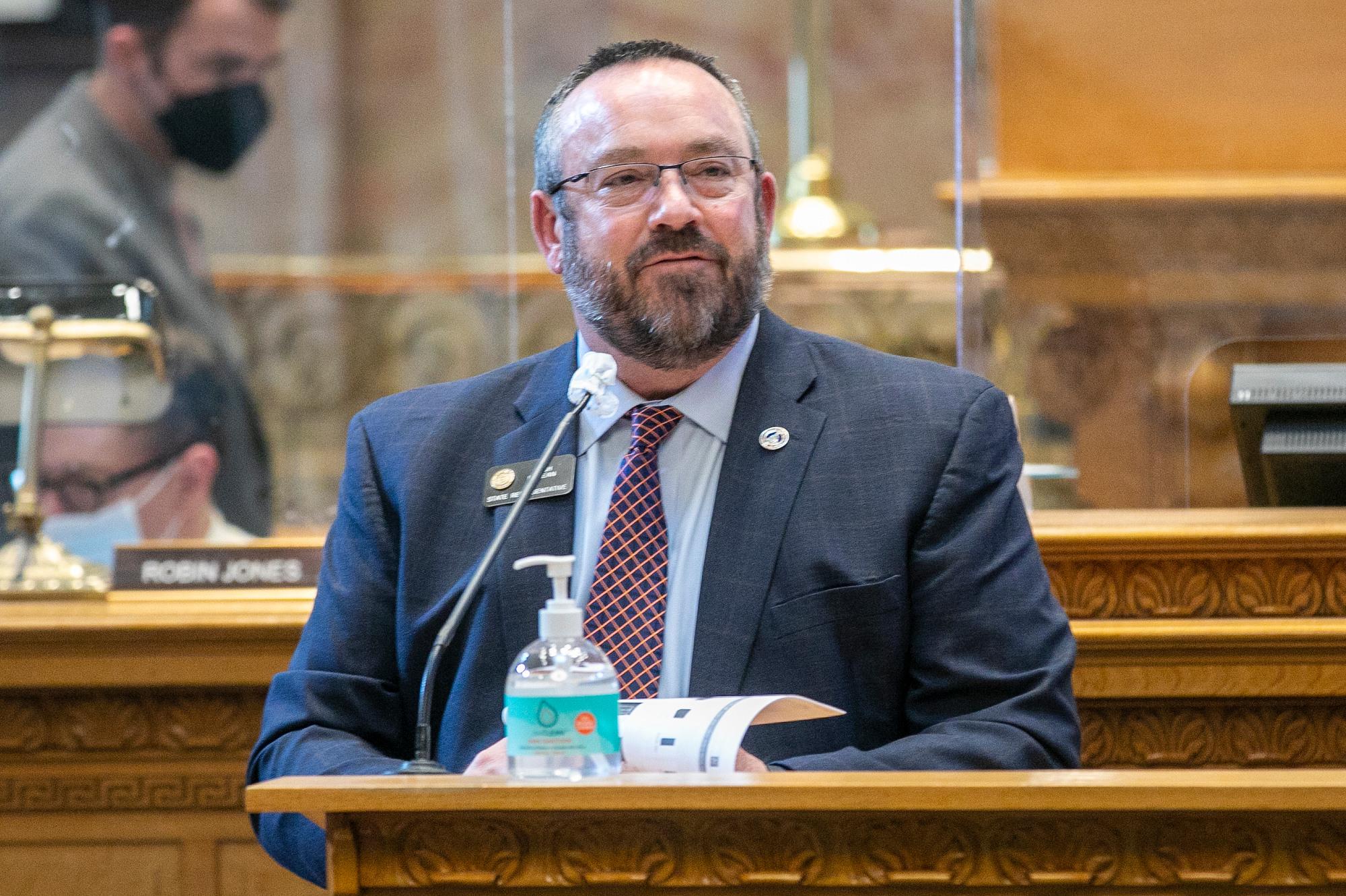
Minutes after the final gavel fell on the grueling 116th day of the legislative session, the 24 members of the House Republican minority gathered in a basement meeting room of the Colorado State Capitol.
Once again, they returned to the questions that have divided them: What is the path back to power? And who is best to lead them there?
Rep. Ron Hanks had called the evening meeting shortly after the conclusion of the year’s legislative work. He proposed a vote of no confidence against Minority Leader Hugh McKean, who had just finished his first session as the leader of the caucus.
“We’ve been on our heels this entire session due to a failure to lead,” Hanks said. “This fight is bigger than any one of us. We are fighting for millions of Coloradans. We have to fight better, smarter and stronger.”
The ensuing debate showcased the divisions that persist among House Republicans as the party concludes its third year out of power.
“We’re 41-24, and everybody in this caucus knows we’re running uphill in the wind,” said Rep. Rod Bockenfeld, saying that Republicans needed to unite behind their current leadership until the next election.
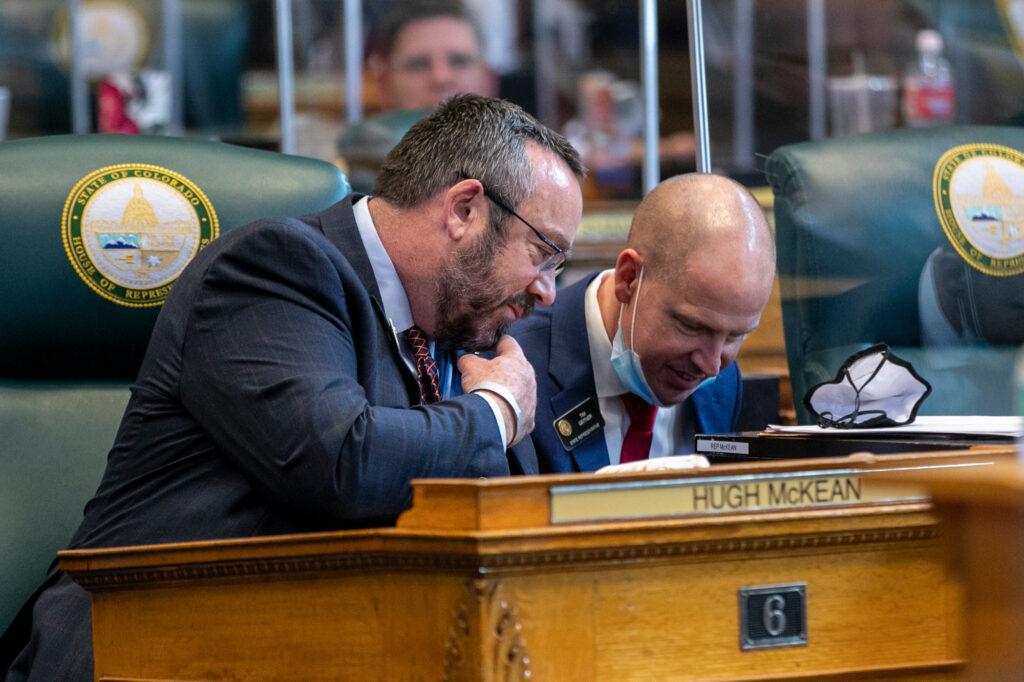
McKean has taken a low-key approach to leadership, saying that he wanted to pick his fights and win compromises where possible. He’s described a state that needs “less ideology and more practicality” and has steered far clear of talk of election conspiracies and many culture-war battles.
“You guys have to understand what it’s like to be the minority leader of a caucus as disparate as ours,” he told his colleagues.
McKean’s critics in the caucus, like Hanks, said they wanted to see a more muscular fight against what they described as creeping leftism. Hanks and others complained that McKean had seemed to bow to Democrats’ scheduling demands. Rep. Dave Williams said that McKean had been too quick to pass judgment in the press when fellow Republicans faced a controversy.
McKean jabbed back at his critics, saying that Williams himself had been the source of leaks to journalists. He argued that the caucus had influenced Democratic priorities by strategically delaying debates over the final weeks of the session. And he said that Republicans are closing the gaps in their line.
“I see the division as relatively narrow,” he said. “We have to make decisions for what’s best for the caucus.”
After 40 minutes of debate — and a brief hubbub about whether or not to collect ballots in a hat — the caucus rejected the vote of no confidence, keeping McKean as leader. He easily survived the challenge, winning the support of 15 of his 23 colleagues.
“We can either continue to fight amongst ourselves, or people can grow up, and we can be effective together,” said Rep. Tim Geitner, the assistant minority leader.
Counting their victories
This was the third session that Democrats have held power in both chambers of state government, as well as the governor’s office. And they embraced that power in a new way this year — passing significant bills on health insurance, taxes, guns, immigration, and climate change.
Still, as they wrapped up their work for the year, GOP lawmakers looked for signs of light. Senate Minority Leader Chris Holbert said that Democrats offered more compromises in the session’s final weeks — a result, he argued, of Republican pressure and delaying tactics.
“There was so much of a logjam there in the House that I think, in the end, it really encouraged Senate leadership Democrats to negotiate,” Holbert said. “They went very hard left, but a lot of that had to be tempered down.”
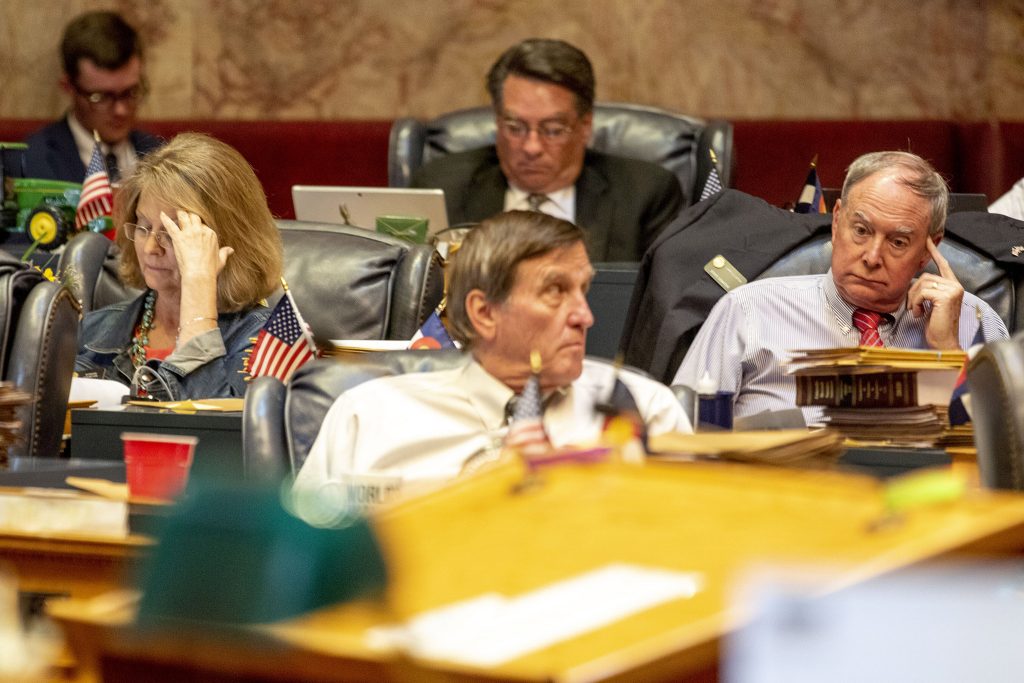
In the House, Republican members asked for bills to be read at length throughout the final weeks of session, and sometimes took on the task themselves, in order to drag out the pacing even more. That tactic worked to slowly burn away hours from the legislature’s limited schedule.
McKean said that his House caucus won amendments on a few significant bills, including a plan to regulate prescription drug prices, and he pointed to the dramatic rewrite of the bill for new government-regulated health insurance as a success.
“Did we get it to where it was a bill that we could support and feel good about? No. But part of this process is to move it toward where it could get there,” said McKean.
Democrats also gave up on a bill that aimed to strengthen regulation of charter schools, along with efforts to reform pre-trial detention and workplace harassment laws, although they say that the factors go far beyond Republican opposition.
Despite GOP delays, Democrats were able to conclude the session with four days to spare, indicating that they weren’t as pressed for time in the end as it sometimes seemed in recent weeks. And some Republicans question whether the party did everything it could to derail Democratic bills.
“They passed a very radical agenda with very little pushback,” said Rep. Patrick Neville, who served as House Minority Leader until stepping down last fall. He argued GOP leaders didn’t have “much of a plan, quite frankly, in either chamber … It seems like there was long debates, but no objective to the debate.”
Republicans launched their last resistance to Democratic priorities just as the session was about to wrap up. They used all the time available under the rules to delay the final vote on an environmental justice and climate change bill, with McKean saying that Democrats had committed a major foul by delivering a sprawling amendment this week and leaving little time for review.The impromptu filibuster lasted several hours into the evening, but in the end the bill passed, in the form worked out between Democratic leaders and the governor.
Bipartisanship had its moments
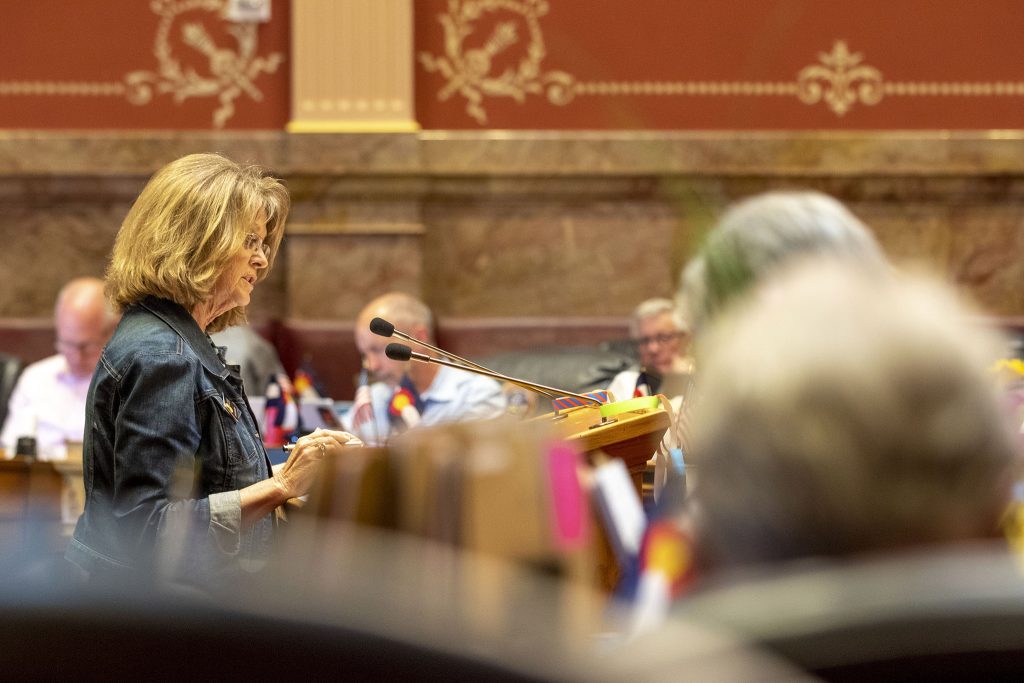
In several cases, Republicans worked with Democrats on consequential but less controversial bills. Rep. Matt Soper successfully cosponsored two bipartisan bills, SB21-073 and SB21-088, that would give survivors of sexual abuse more time to sue, potentially including for cases that go back decades.
But it was much more difficult to get traction on “mainstream” topics, he said.
“I could kind of play on the edge and be successful, but I just felt like it was really frustrating to even try to touch the large ticket items,” Soper said.
Sen. Barbara Kirkmeyer of Weld County described this, her first session, as a frustrating experience, with Republicans brought in late on many bills. Instead, she said, the most influential debates were often between Democratic lawmakers and Gov. Jared Polis.
“He doesn't run the legislative branch, but I'm amazed at how the majority caucus basically succumbs to his will,” Kirkmeyer said.
With little power in the current legislature, Republicans look to the future
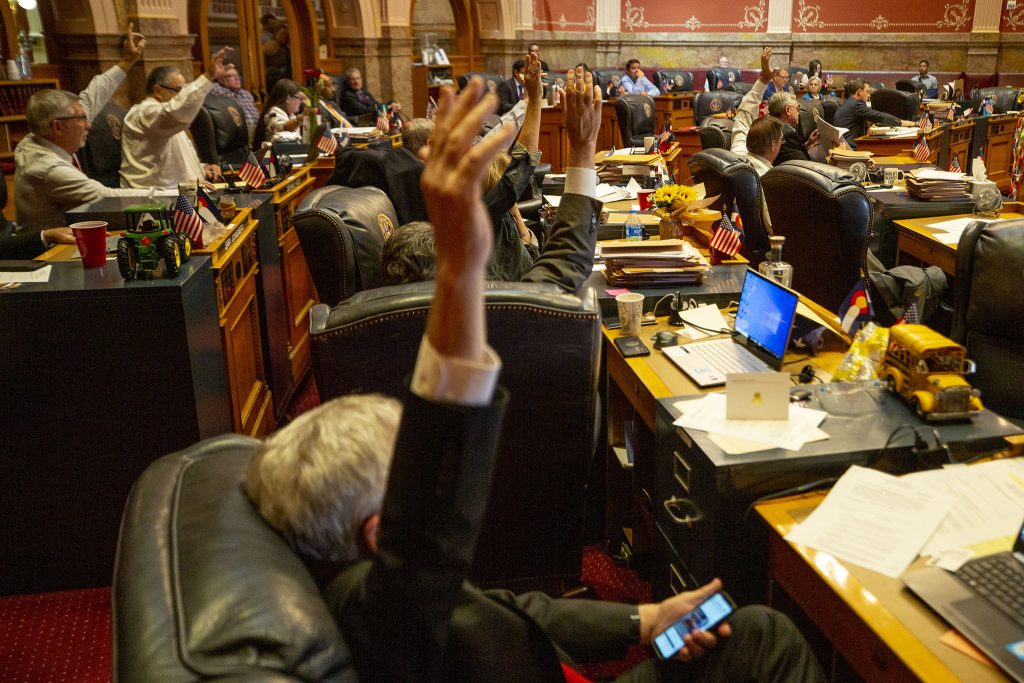
Like other Republicans, she said that the GOP was zeroing in on topics like schools, agriculture and the economy, hoping to persuade voters to return them to power.
“I think over the course of the next year or two years, we will come out with a commitment — I don't want to call it a Contract for Colorado — but a commitment … a Republican vision to lead this state in a prosperous way,” she said.
Democrats are set to hold their majorities for at least another session, with the next statehouse elections in November 2022. Republicans are hoping, in part, that Democrats have overstepped by embracing fees and other financial changes to pay for major new government programs.
“It’s our responsibility to make sure that the voters understand the damage that actually ensued here,” Geitner said.
Republican leaders like McKean also hope that the state’s redistricting process could deliver more favorable maps for that election, opening the door for the GOP to retake the Senate, where Democrats currently have a three-seat majority. Holbert argues that voters will want to see a split government, where the parties have to make decisions together.
“It actually leads to more cooperation and more compromise, better outcomes,” he said.
In the meantime, Soper had a simple request for the next session: “I think the people of Colorado want a year where not much is done,” he said. “I mean, there's things that always have to be tweaked in statutes, but we don't always have to have a major year where we're overhauling everything from transportation to healthcare, to criminal justice reform, all in one year.”
Democrats, who have their eyes on the next election too, will make their own calculations.
- After Months Of Debate, Agriculture Workers Are Set To Gain New Rights In Colorado
- Voters’ Rights, Progressive Values And Rural Colorado Shape Debate Over Last-Minute Property Tax Proposal
- Colorado Government Websites Still Aren’t Accessible To Many People With Disabilities. But New Funding Could Finally Change That
- Colorado Is On The Verge Of Creating A Government-Backed Health Insurance Option. It Would Be The Nation’s Second









